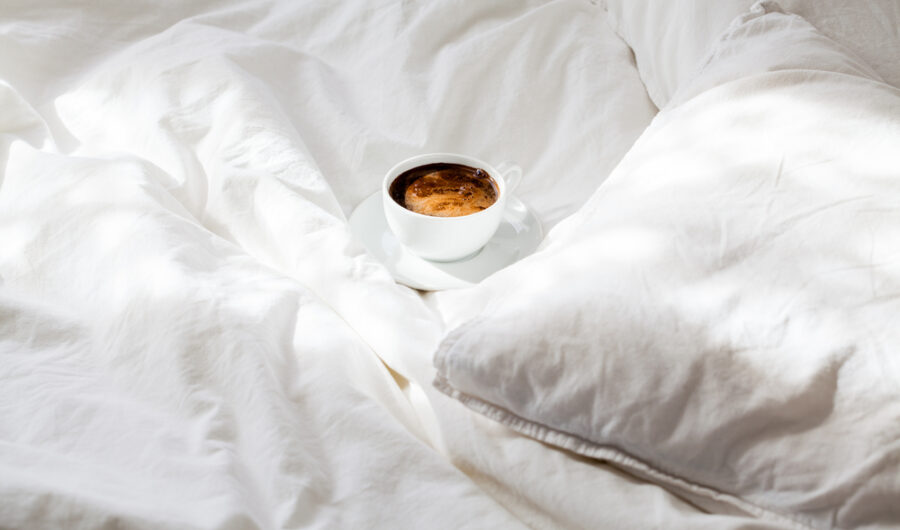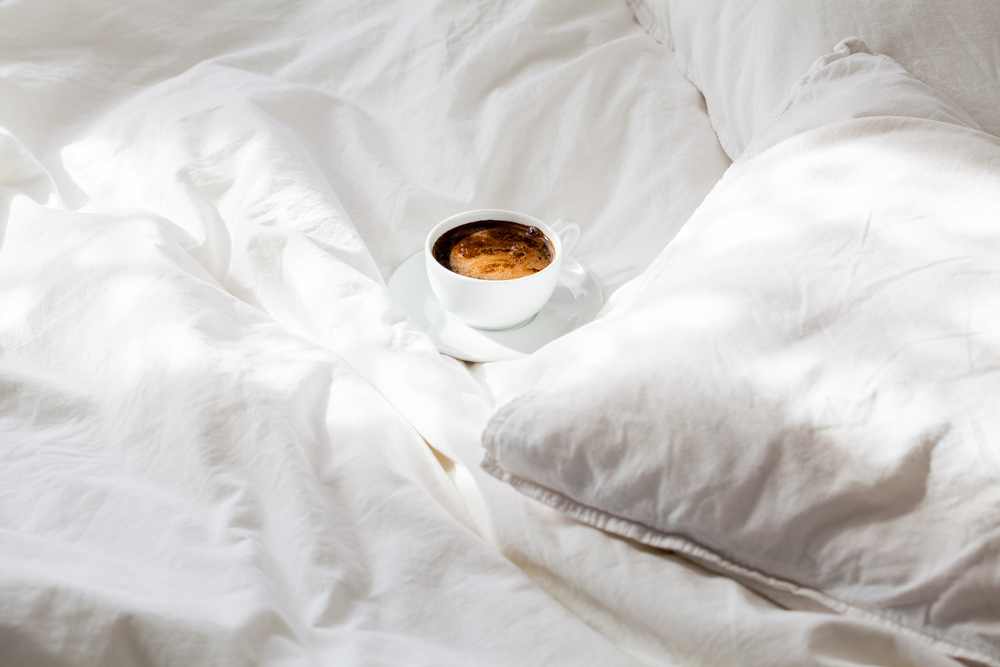Of all the midlife symptoms, poor sleep can be one of the most troublesome, leading to a knock-on effect across our wider health and wellbeing, amplifying tiresome menopause and peri menopause symptoms such as low mood, heightened anxiety, and fatigue, leaving us feeling completely drained.
Whilst overall my quality of sleep isn’t bad, there are a lot more nocturnal wakings for loo visits, hot flush annoyances and the 3am busy head anxieties that creep in throughout midlife. So how can we improve the quality of our sleep and get the rest we need?
In menopause and peri menopause, hormone fluctuation and stress are main contributors to sleep deprivation and can become a vicious cycle with elevated cortisol levels impacting us, causing inflammation in the body and contributing to elevated blood pressure and poor mental health in the form of anxiety and depression. Sleep is when the body restores itself, cleaning out what isn’t needed and filing away things from the day.
The Chinese clock: which organ is grinding your gears?
Did you know that according to Chinese medicine, the time you wake up in the night relates to a specific organ of the body? Andrea Dewhurst, aka the Period Acupuncturist explains: “In Chinese medicine, qi is the energy that flows throughout our organs and creates balance. Each internal part of the body experiences active qi flow at different times during the night”. For me, and many of my girlfriends, 3am is the worst time – this is when I need to pee, and then the worry gremlins wake up, which, according to Chinese medicine is when the liver is busy detoxifying our bodies and processing the emotions of the day. This is interesting as the liver is the organ that needs the most support during menopause – why? It is known as “the general” in Chinese medicine as it is constantly working away in the background, it is a filter for the body and if it gets impaired in anyway, this can have a major impact on our hormones and our wider body. In peri menopause, on top of its regular filtering job, the liver must deal with fluctuating hormone levels, so it has a lot on its plate.
Diet and Sleep
Diet can be key to helping your liver at this time – including eating more cruciferous vegetables such as broccoli, cabbage, cauliflower, and fresh carrot juice or add a bit of turmeric to your cooking – it is great for decongesting the liver and I include a teaspoon in my morning breakfast protein shake. Upping your water intake to flush out internal organs is also super important.
GP Anita Sturnham from Agora health says “Eating late at night can impact sleep in several ways. Consuming a large meal close to bedtime can lead to indigestion and discomfort, making it difficult to fall asleep. Eating late at night can also disrupt the body’s natural circadian rhythm, as the digestive system becomes active when it should be winding down for the night. This can interfere with the body’s ability to enter the restful stages of sleep. I try to eat around 6-7pm at least 4 days a week.”
She recommends avoiding large meals, especially those high in fat or difficult to digest, close to bedtime to promote better sleep quality. Opting for lighter, more easily digestible snacks if needed can help support a good night’s rest.
Why we all need a bedtime routine
Dr David Lee is Clinical Director at Sleep Unlimited Ltd and author of “Teaching the World to Sleep”. Sleep Unlimited was founded in 2003 as a consequence of a lack of support in the sleep domain nationally. Whilst it is a well-known fact that sleep processes deteriorate with advancing age, particularly after middle age and into older age, he explained that there are only two NICE* approved interventions in the United Kingdom (and across the developed world) for insomnia and poor sleep: sleeping tablets and cognitive behavioural therapy or CBT, which is what they focus on at Sleep unlimited and has proved highly effective, working for around 70 to 80% of people who engage with it.
There are different versions of CBT for different conditions and the kind used for insomnia is called CBT-I, which involves putting in all the good things that sleep likes, like good routines and exposure to natural daylight, and removing things that sleep doesn’t like such as devices, alcohol and caffeine. So, much like we do with our kids, so we should apply to ourselves! Establish a night-time routine that sends cues to your brain that bedtime is incoming… and sometimes this can mean starting the day with bedtime in mind.
- Identify and remove any obstacles for sleep in the two hours before bed: phones, ipads any blue light emitting devices.
- Avoid heavy meals, too much alcohol or overstimulating activity, as we need to wind-down to get to sleep.
- Preserve the bedroom for sleep and sleep alone, so that as we enter our bedrooms, we are cued up for sleeping rather than engaging in other activities like watching TV or using a phone.
- Add movement to your daily routine – this can be as little as a daily walk after lunch – it will trigger the release of feel-good endorphins and dopamine and reduce cortisol, a walk in nature would be optimal but any activity is good.
Other things I am finding helpful:
- Taking a relaxing bath or shower, not too hot, however. Not only is this a moment you can turn into a self-care switch off, but an Epsom salt bath once a week is rich in magnesium, which will help draw out the acids and toxins from the body (which is great for the liver!).
- Ensure your bedroom is dark, cool and quiet.
- Clare Anderson, Founder of Sensory Sleep: suggests adding a weighted blanket to your bed to aid sleep and declutter your bedroom to promote relaxation.
- I love taking magnesium before bed, I find it calms the nervous system in readiness for sleep.
- Finally, put the phone down and pick up a good book and escape to something other than social media.
Products to try:
- The Mellow Patch Company Sleepy Head patches – with a powerful blend of Valerian extract, Passion flower extract, and Ashwagandha, this patch is designed to promote deep relaxation, ease anxiety, and support a peaceful night’s rest. Brilliant for travel and easy to use.
- Sleep Tight Plus – these capsules are formulated with a blend of magnesium, valerian root, passion flower, ashwagandha, oatstraw and many other ingredients to help relax and improve sleep quality.
- Revive Collagen – Menopause beauty sleep collagen drink – boost your collagen and get better sleep? I am in – This contains 7.500mg of hydrolysed marine collagen, biotin to help hair and nail health, chicory root, which is rich in antioxidants and vitamins and minerals and selenium and vitamin B9, which have shown to be effective in alleviating hot flushes.
- Try a Cooling pillow – this dual sided pillow from luffsleep has a cooling gel pad insert on one side and soft bamboo on the other.
*National Institute for Health and Care excellence
words by Nicola de Burlet














